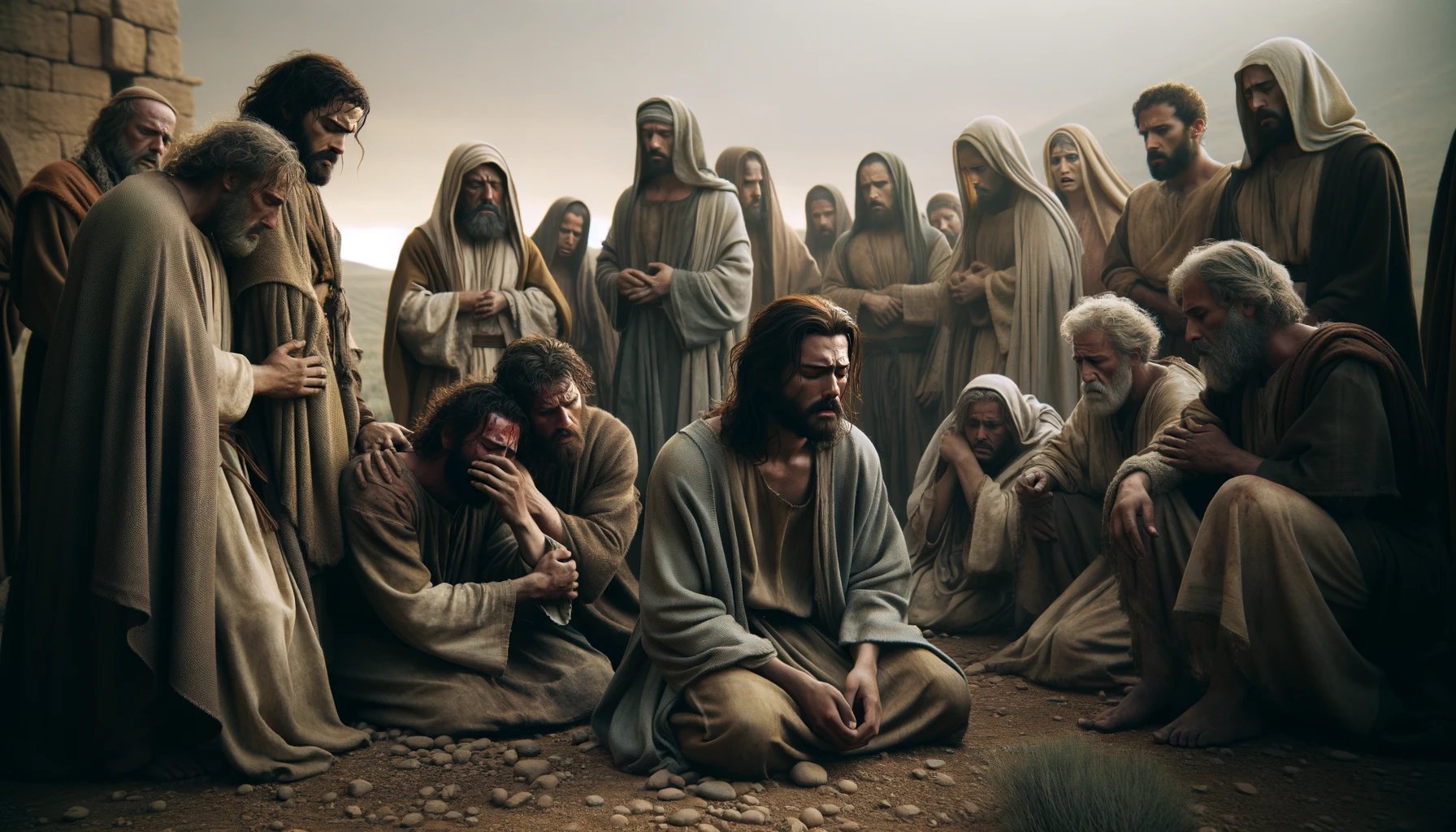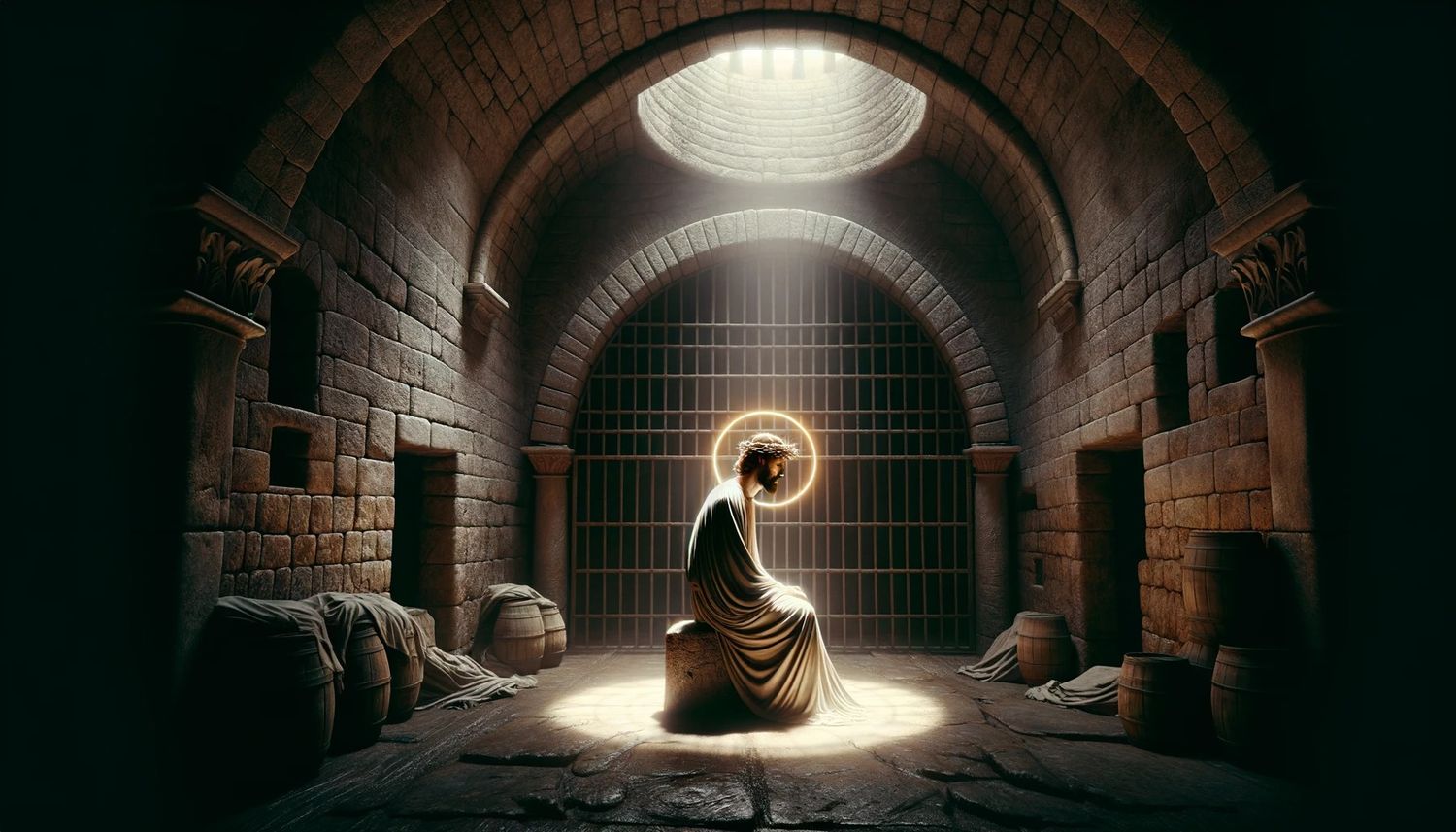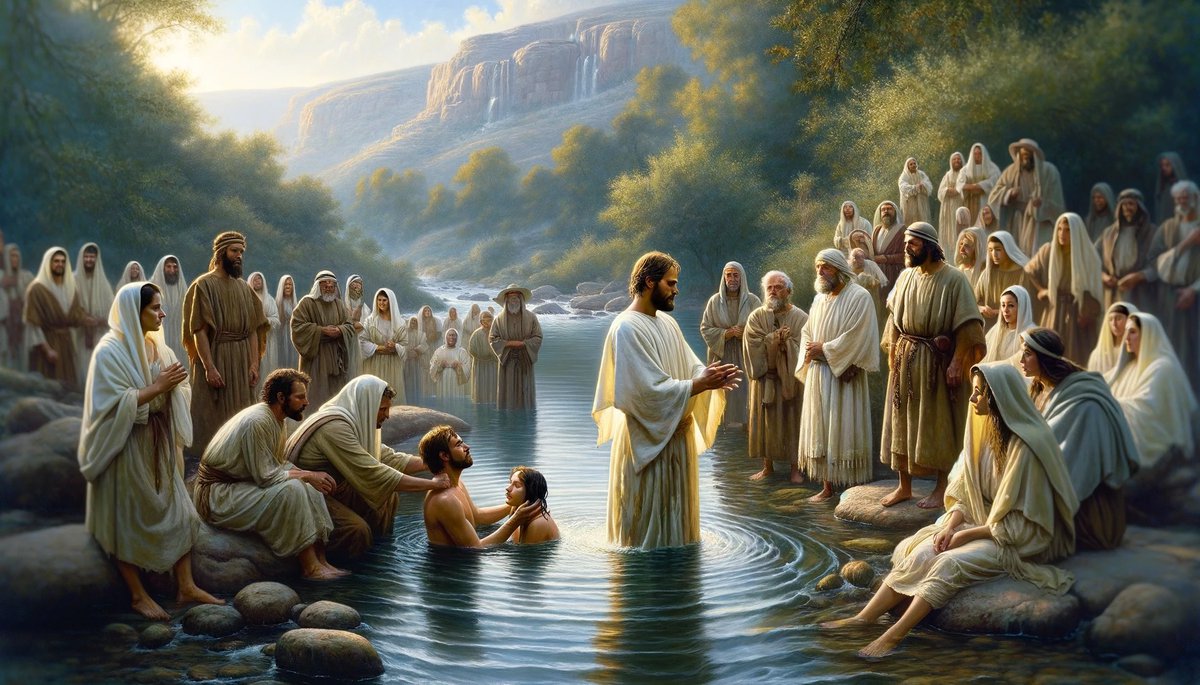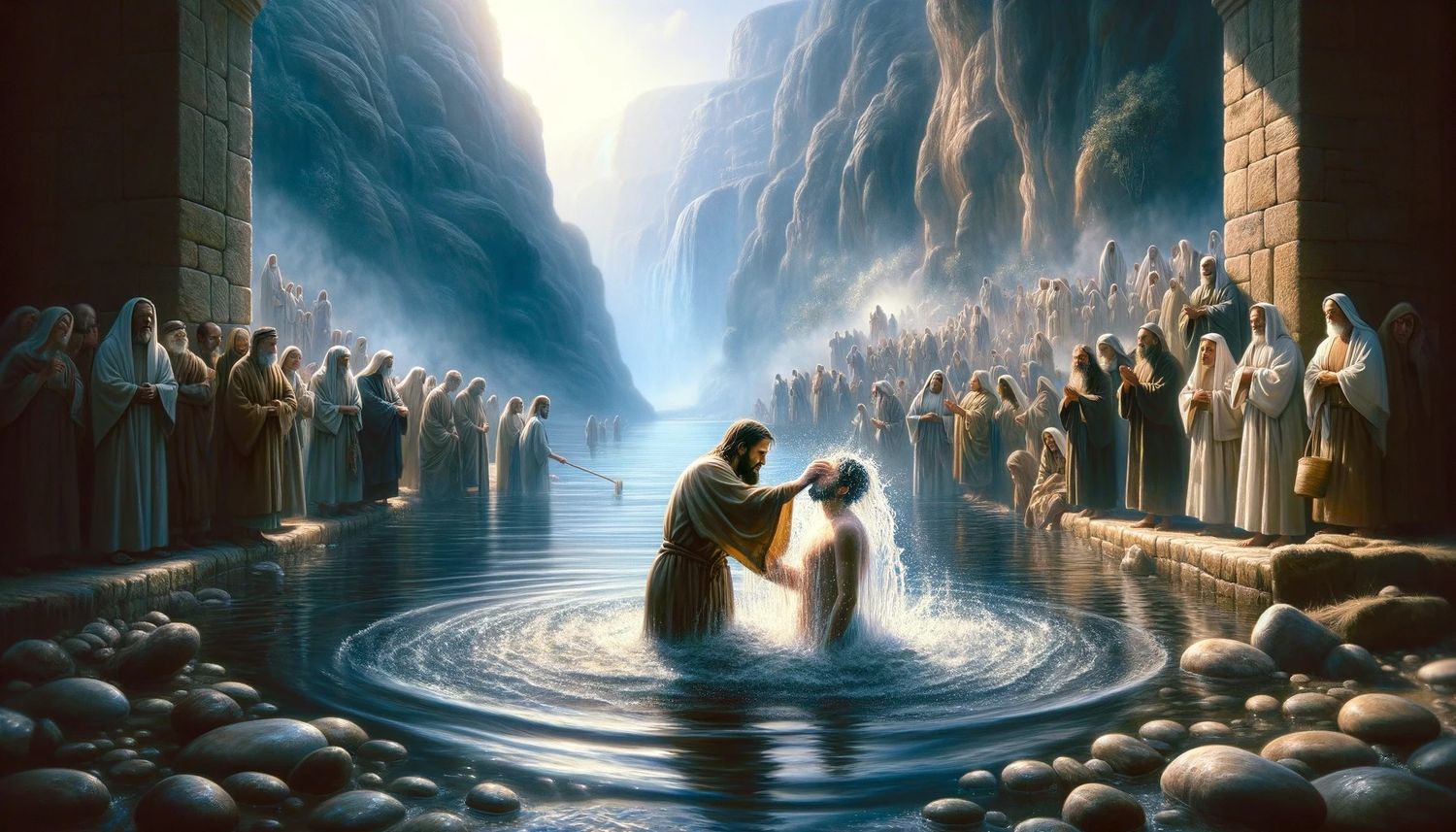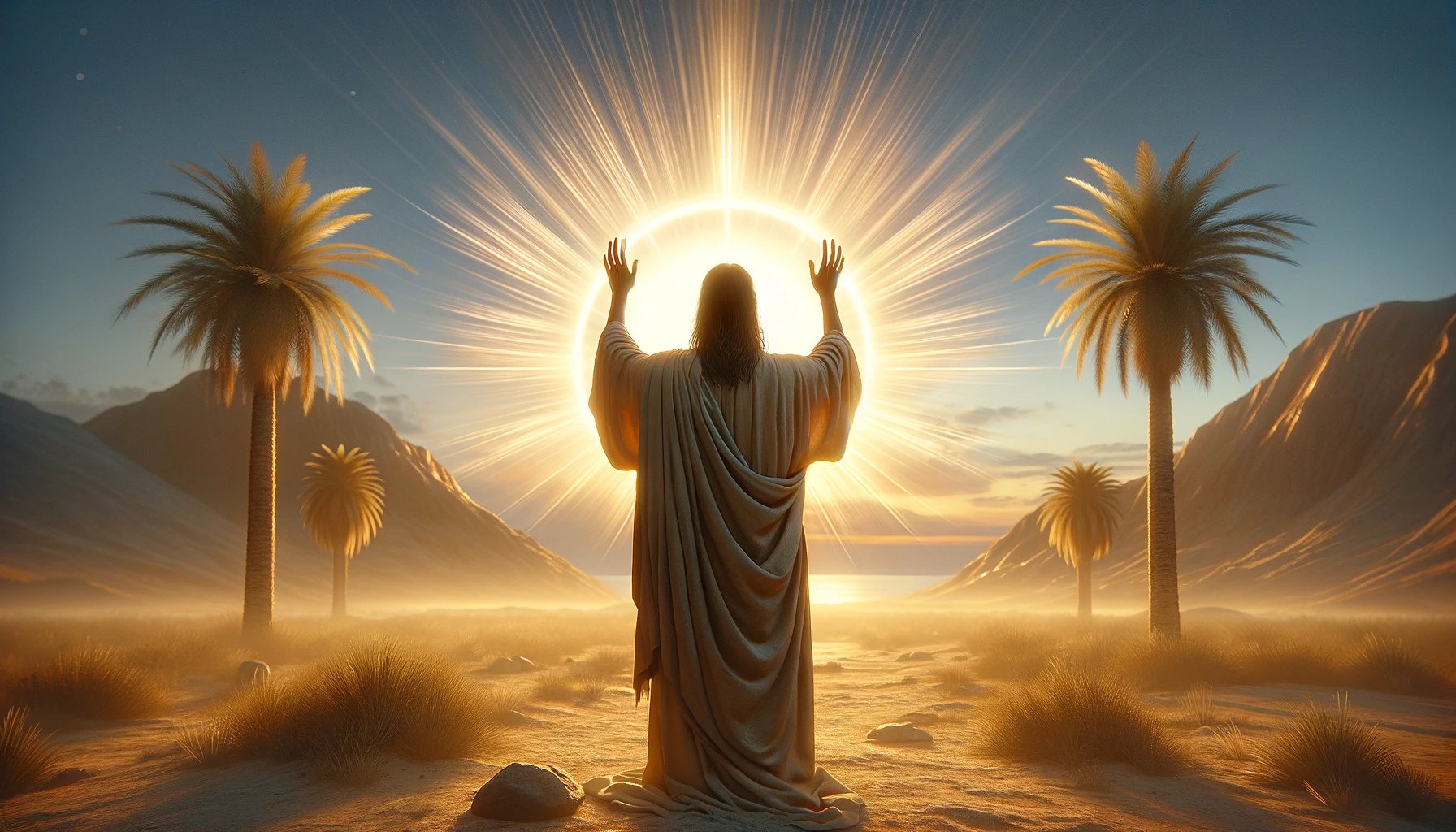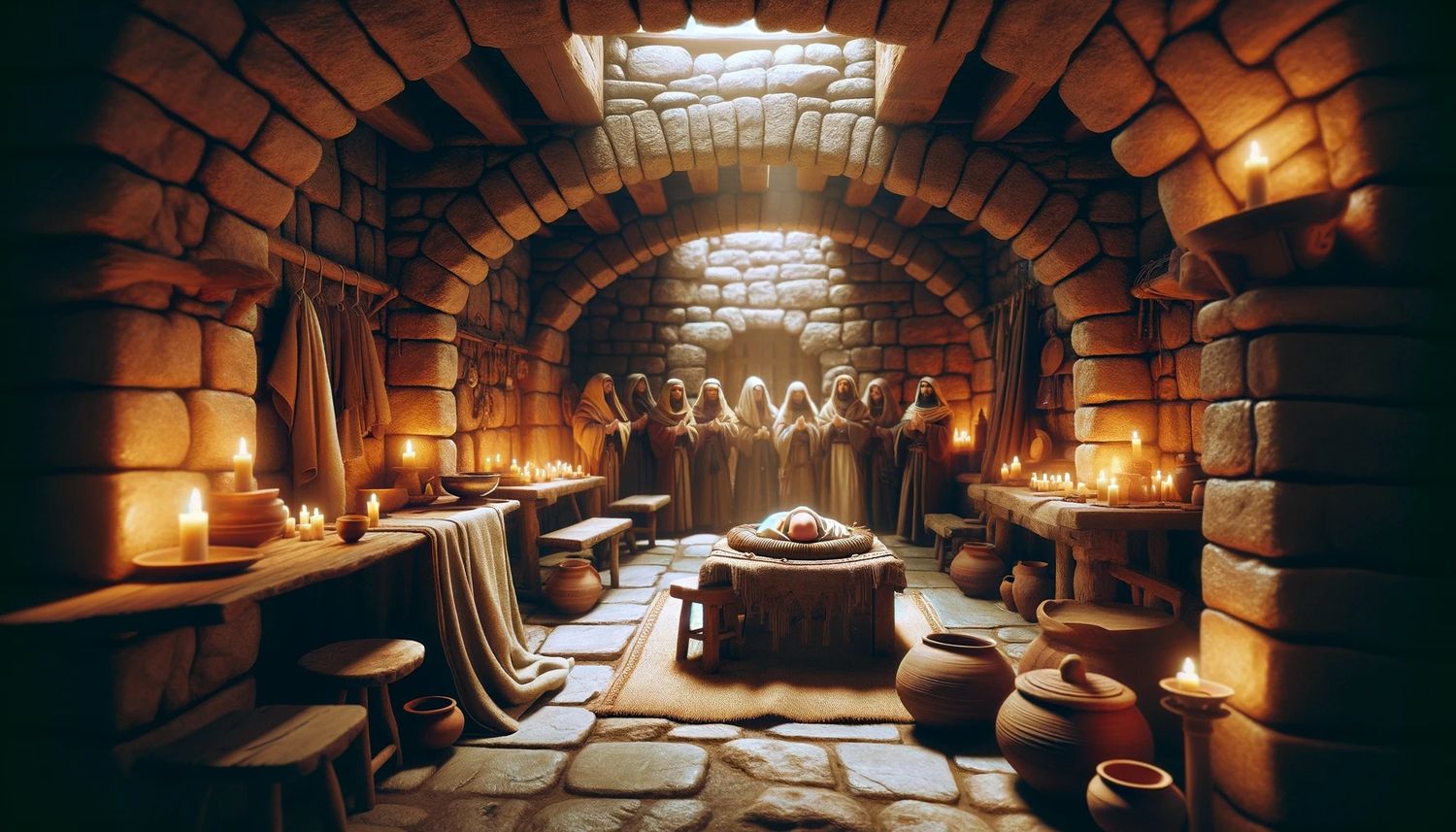Home>Theology and Spirituality>How Is John The Baptist Elijah
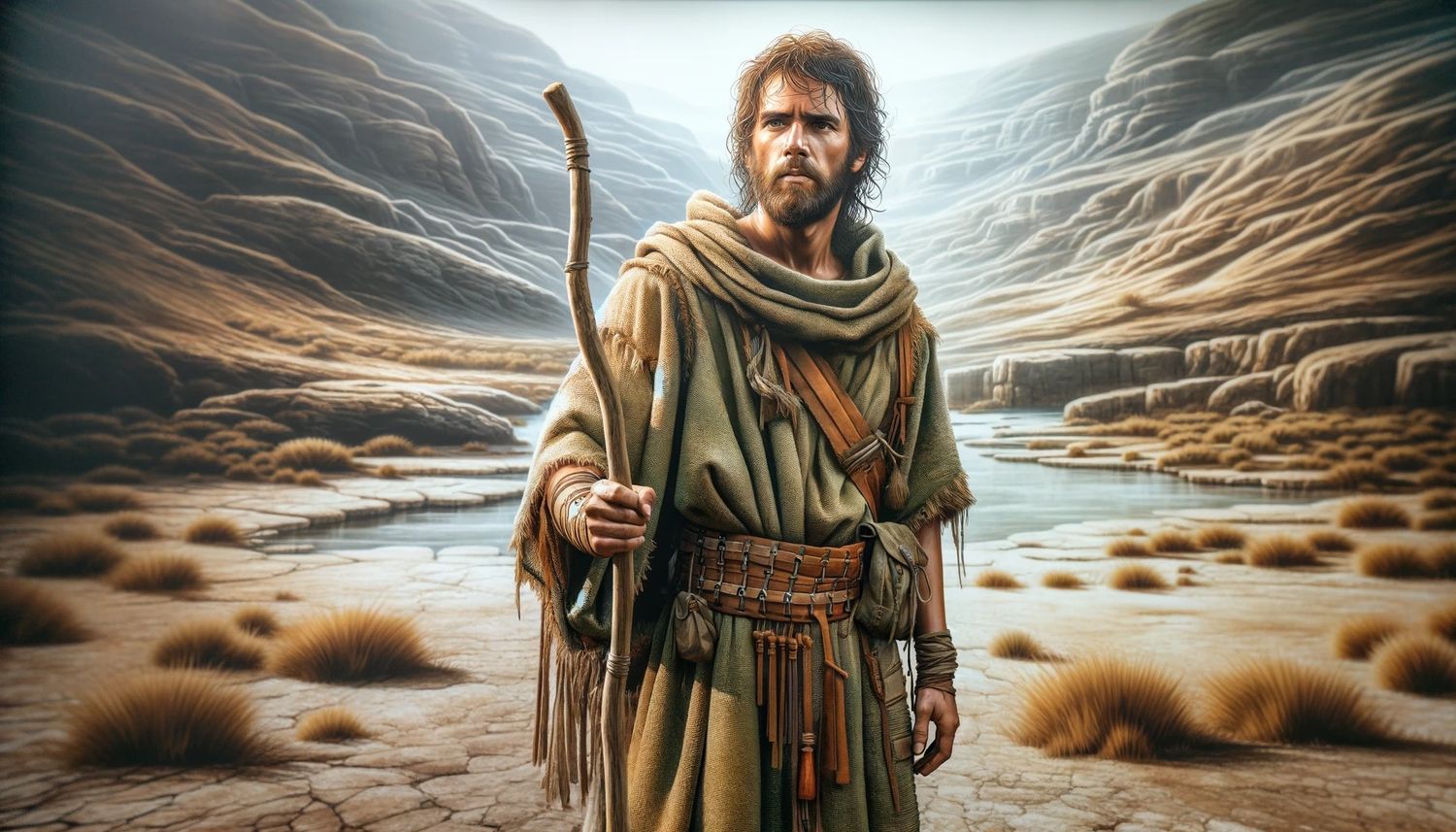

Theology and Spirituality
How Is John The Baptist Elijah
Published: February 24, 2024
Ericka Andersen, an editor at Christian.net, expertly merges digital strategy with content creation, focusing on faith and societal issues. Her communication skills enhance the platform's engaging narratives, fostering meaningful dialogue on belief's impact on society.
Discover the connection between John the Baptist and Elijah in this insightful exploration of theology and spirituality. Uncover the biblical significance and historical context.
(Many of the links in this article redirect to a specific reviewed product. Your purchase of these products through affiliate links helps to generate commission for Christian.net, at no extra cost. Learn more)
Table of Contents
Introduction
The relationship between John the Baptist and the prophet Elijah is a topic that has intrigued theologians and spiritual seekers for centuries. Both figures are revered for their pivotal roles in the history of Judeo-Christian tradition, and the parallels between their lives and ministries have sparked profound contemplation and debate.
The intertwining of their narratives is rooted in the prophecy of Elijah's return, a prophecy that has captivated the imagination of believers and scholars alike. This prophecy, found in the Old Testament book of Malachi, foretells the coming of Elijah before the great and dreadful day of the Lord. The anticipation of Elijah's return became a source of fervent expectation and speculation among the Jewish people, shaping their understanding of the awaited Messiah.
As we delve into the enigmatic connection between John the Baptist and Elijah, we embark on a journey that transcends mere historical inquiry. It is a journey that delves into the spiritual and symbolic dimensions of their lives, inviting us to contemplate the profound implications of their intertwined destinies.
The enigmatic connection between John the Baptist and Elijah is not merely a matter of historical curiosity; it holds profound spiritual significance and theological implications. As we explore the parallels between these two figures, we are invited to contemplate the timeless themes of prophecy, preparation, and the fulfillment of divine promises. This exploration offers a glimpse into the intricate tapestry of Judeo-Christian tradition, where the threads of prophecy and fulfillment are woven together in a rich and profound narrative.
The convergence of John the Baptist and Elijah's stories invites us to ponder the intricate interplay between human agency and divine purpose, as well as the enduring relevance of their messages in our contemporary world. It beckons us to reflect on the timeless themes of repentance, spiritual awakening, and the call to prepare the way for the transformative power of divine grace.
As we embark on this exploration, we will unravel the layers of symbolism and significance that enshroud the relationship between John the Baptist and Elijah, shedding light on the profound spiritual truths that continue to resonate across the corridors of time.
Read more: How Is John The Baptist Like Elijah
The Prophecy of Elijah's Return
The prophecy of Elijah's return, as articulated in the Old Testament book of Malachi, stands as a testament to the enduring anticipation of a significant figure preceding the advent of the Messiah. In Malachi 4:5-6, the prophet declares, "Behold, I will send you Elijah the prophet before the great and awesome day of the Lord comes. And he will turn the hearts of fathers to their children and the hearts of children to their fathers, lest I come and strike the land with a decree of utter destruction."
This prophecy, echoing through the corridors of time, kindled a fervent expectation among the Jewish people, who eagerly awaited the fulfillment of this promise. The prospect of Elijah's return became intertwined with the anticipation of the Messiah, intertwining the destinies of these two pivotal figures in the eschatological imagination of ancient Israel.
The imagery of Elijah's return carried profound significance, evoking the memory of the prophet's dramatic departure from the earthly realm in a whirlwind, as recounted in 2 Kings 2:11. This departure left a lingering sense of expectancy, as the people pondered the possibility of Elijah's reappearance to fulfill his prophetic mission.
The anticipation of Elijah's return was not merely a matter of historical curiosity; it was imbued with profound theological and spiritual implications. It symbolized the restoration of all things, the reconciliation of generations, and the ushering in of a new era of divine intervention. The hearts of the fathers turning to their children and the hearts of the children turning to their fathers encapsulated the theme of reconciliation and familial restoration, signaling a transformative renewal that would precede the advent of the day of the Lord.
The prophecy of Elijah's return resonated with the yearning for divine intervention and the restoration of righteousness, echoing the deep-seated longing for the fulfillment of God's redemptive promises. It became a focal point of hope and expectation, shaping the collective consciousness of the Jewish people and laying the groundwork for the emergence of John the Baptist as a pivotal figure in the fulfillment of this prophetic anticipation.
As we contemplate the prophecy of Elijah's return, we are drawn into the profound currents of anticipation and divine promise that permeate the Judeo-Christian tradition. This prophecy serves as a poignant reminder of the interconnectedness of prophetic utterances and their fulfillment, inviting us to ponder the enduring relevance of ancient promises in our contemporary spiritual journey.
John the Baptist's Ministry and Message
John the Baptist emerged onto the Judean scene with a compelling and transformative ministry that reverberated with echoes of ancient prophecy and the call to spiritual awakening. His message resounded with uncompromising clarity, as he proclaimed the imminent arrival of the kingdom of God and called upon the people to repent and prepare their hearts for the coming of the Messiah.
Venturing into the wilderness of Judea, John embodied the archetype of the prophetic voice crying out in the wilderness, as foretold by the prophet Isaiah. His austere lifestyle and unyielding commitment to his divine calling lent an air of authenticity to his proclamation, drawing multitudes from Jerusalem and all Judea to the banks of the Jordan River.
Immersing the repentant throngs in the waters of baptism, John symbolized the purification and renewal of hearts in preparation for the dawning of a new era. His baptismal rite served as a powerful symbol of spiritual cleansing and readiness, inviting the participants to embrace a transformed way of life in anticipation of the imminent arrival of the long-awaited Messiah.
John's message reverberated with urgency and conviction, as he confronted the religious authorities and challenged the prevailing spiritual complacency. His uncompromising call to repentance and ethical renewal cut through the religious formalism of his time, stirring the hearts of the people and igniting a fervent longing for spiritual transformation.
In his encounters with the religious leaders, John exhibited a fearless commitment to truth and righteousness, refusing to be swayed by the trappings of power or prestige. His unwavering integrity and prophetic boldness positioned him as a transformative figure whose message transcended the confines of conventional religious structures, resonating with the timeless yearning for authentic spiritual renewal.
The ministry of John the Baptist embodied a profound continuity with the prophetic tradition of ancient Israel, as he heralded the imminent fulfillment of divine promises and the inauguration of a new covenantal era. His message of repentance and spiritual readiness echoed the timeless themes of prophetic anticipation, inviting the people to align their lives with the transformative power of divine grace.
As we contemplate the ministry and message of John the Baptist, we are invited to ponder the enduring relevance of his call to repentance and spiritual awakening. His proclamation serves as a timeless reminder of the perennial human need for ethical renewal and spiritual readiness, resonating across the corridors of time with an urgency that transcends historical epochs.
The Similarities Between John the Baptist and Elijah
The parallels between John the Baptist and the prophet Elijah are striking, encompassing both their lives and ministries. These parallels serve as a testament to the intricate tapestry of divine providence, weaving together the destinies of these two pivotal figures in a seamless continuum of prophetic proclamation and spiritual significance.
One of the most conspicuous similarities lies in their distinctive attire and manner of living. Both John the Baptist and Elijah embraced an ascetic lifestyle, eschewing the trappings of wealth and worldly comfort in favor of a rugged existence in the wilderness. Their choice of attire, characterized by simple garments woven from camel's hair, underscored their renunciation of materialism and their unwavering commitment to their prophetic calling. This shared mode of living served as a visual symbol of their detachment from the allure of worldly possessions, positioning them as embodiments of prophetic authenticity and spiritual dedication.
Furthermore, both figures exhibited a fearless and uncompromising commitment to truth and righteousness, even in the face of opposition and persecution. Elijah's confrontations with the religious authorities of his time, particularly with the prophets of Baal, exemplified his unwavering fidelity to the worship of the one true God. Similarly, John the Baptist fearlessly challenged the religious establishment of his era, calling out the hypocrisy and moral laxity prevalent among the religious leaders. Their shared courage in speaking truth to power and their unyielding adherence to ethical principles positioned them as transformative voices in the midst of spiritual and moral decadence.
Moreover, both John the Baptist and Elijah were instrumental in preparing the way for the manifestation of divine intervention. Elijah's ministry paved the way for the restoration of true worship and the reaffirmation of God's covenant with the people of Israel. Likewise, John the Baptist's proclamation of repentance and baptism served as a preparatory call for the imminent arrival of the Messiah and the inauguration of the kingdom of God. Their shared role as heralds of divine intervention underscores the continuity of their prophetic missions and the enduring relevance of their preparatory ministries in the unfolding drama of salvation history.
In contemplating the similarities between John the Baptist and Elijah, we are invited to discern the timeless themes of prophetic continuity and spiritual authenticity that resonate across the ages. Their parallel lives and ministries serve as a poignant reminder of the enduring relevance of their prophetic witness, inspiring us to embrace the call to ethical integrity and spiritual readiness in our own spiritual journey.
The Interpretation of John the Baptist as Elijah
The interpretation of John the Baptist as Elijah holds profound theological and spiritual significance, encompassing a rich tapestry of prophetic anticipation and fulfillment. This interpretation finds its roots in the enigmatic prophecy of Elijah's return, as articulated in the Old Testament book of Malachi. The anticipation of Elijah's reappearance before the great and dreadful day of the Lord became intertwined with the expectation of the Messiah, shaping the eschatological imagination of ancient Israel.
The Gospel accounts of John the Baptist's ministry and his identification with Elijah further fuel the interpretative framework that aligns him with the prophetic figure of Elijah. The Gospel of Matthew, in particular, portrays John the Baptist as the fulfillment of the prophecy of Elijah's return, as evidenced in the words of Jesus himself. In Matthew 11:14, Jesus declares, "And if you are willing to accept it, he is the Elijah who was to come." This unequivocal affirmation by Jesus underscores the interpretative continuity between the prophetic anticipation of Elijah's return and the ministry of John the Baptist.
The identification of John the Baptist as Elijah embodies a profound theological and spiritual continuity, linking the prophetic legacy of ancient Israel with the advent of the Messiah. This interpretative framework underscores the seamless connection between the prophetic utterances of the Old Testament and their fulfillment in the person of John the Baptist, signaling the culmination of divine promises and the inauguration of a new era of redemptive intervention.
The interpretative nexus between John the Baptist and Elijah transcends mere historical conjecture; it embodies the enduring relevance of prophetic anticipation and fulfillment in the Judeo-Christian tradition. It invites us to contemplate the intricate interplay between divine promises and their realization, underscoring the timeless themes of preparation, expectation, and the transformative power of divine intervention.
As we ponder the interpretation of John the Baptist as Elijah, we are drawn into the profound currents of prophetic continuity and fulfillment, inviting us to discern the enduring relevance of ancient promises in our contemporary spiritual journey. This interpretative framework serves as a poignant reminder of the interconnectedness of prophetic utterances and their fulfillment, beckoning us to embrace the call to spiritual readiness and ethical renewal in anticipation of the redemptive interventions that continue to unfold in our lives and in the world.
Read more: How Was John The Baptist Like Elijah
Conclusion
The enigmatic connection between John the Baptist and the prophet Elijah transcends mere historical curiosity; it embodies profound theological and spiritual significance, inviting us to contemplate the intricate interplay between divine promises and their fulfillment. The parallels between their lives and ministries, rooted in the prophecy of Elijah's return, serve as a testament to the enduring anticipation of a significant figure preceding the advent of the Messiah. This anticipation, intertwined with the expectation of the Messiah, shaped the eschatological imagination of ancient Israel, laying the groundwork for the emergence of John the Baptist as a pivotal figure in the fulfillment of this prophetic anticipation.
As we unravel the layers of symbolism and significance enshrouding the relationship between John the Baptist and Elijah, we are beckoned to ponder the enduring relevance of their intertwined destinies in the Judeo-Christian tradition. Their shared commitment to truth and righteousness, their unwavering dedication to their prophetic calling, and their transformative ministries resonate across the corridors of time, inspiring us to embrace the call to ethical integrity and spiritual readiness in our own spiritual journey.
The interpretative nexus between John the Baptist and Elijah embodies a profound theological and spiritual continuity, linking the prophetic legacy of ancient Israel with the advent of the Messiah. The identification of John the Baptist as Elijah underscores the seamless connection between the prophetic utterances of the Old Testament and their fulfillment in the person of John the Baptist, signaling the culmination of divine promises and the inauguration of a new era of redemptive intervention.
In contemplating the intertwined destinies of John the Baptist and Elijah, we are invited to discern the timeless themes of prophetic continuity and spiritual authenticity that resonate across the ages. Their parallel lives and ministries serve as a poignant reminder of the enduring relevance of their prophetic witness, inspiring us to embrace the call to ethical integrity and spiritual readiness in our own spiritual journey. This exploration offers a glimpse into the intricate tapestry of Judeo-Christian tradition, where the threads of prophecy and fulfillment are woven together in a rich and profound narrative, inviting us to align our lives with the transformative power of divine grace.
As we conclude this exploration, we are reminded of the enduring significance of the intertwined destinies of John the Baptist and Elijah, beckoning us to embrace the call to spiritual readiness and ethical renewal in anticipation of the redemptive interventions that continue to unfold in our lives and in the world.

